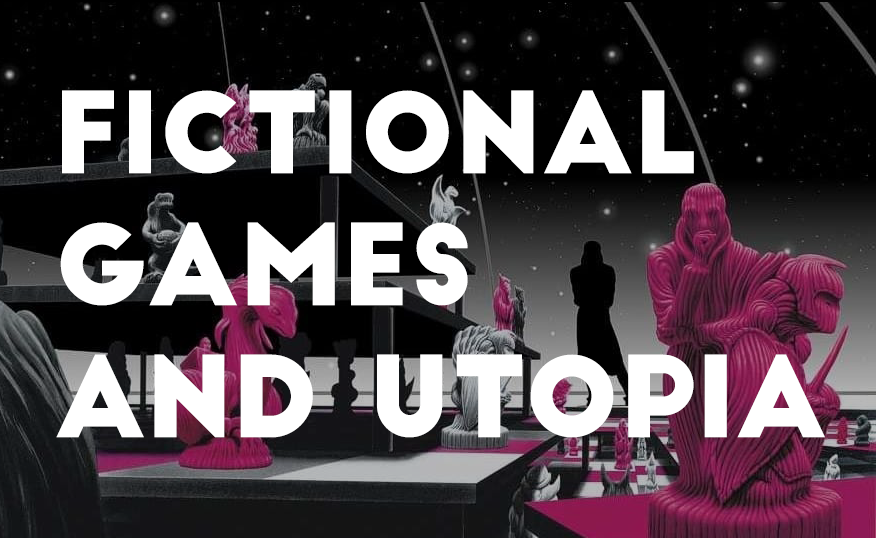
Fictional Games and Utopia: The Case of Azad


Prof. Stefano Gualeni's new scholarly article was just published on the latest issue of the Science Fiction Film & Television Journal! This was a special issue, meant to bring together game scholars and science fiction scholars and explore overlaps and potential synergies in the respective fields.
You can read the pre-print version of the article on Prof. Gualeni's website.
(Video)games as Literature: Examining the role of fictional games in literature and games
In the article, he introduces the notion of 'FICTIONAL GAMES', which is going to be the focus of his upcoming book (forthcoming, 2022) with Dr. Riccardo Fassone (University of Turin).
Prof Gualeni starts with defining ‘Fictional games’ as playful activities and ludic artefacts that were conceptualised to be part of fictional worlds. These games cannot – or at least were not originally meant to – be actually played. This interdisciplinary article discusses fictional games, focusing on those appearing in works of sf. Its objective is that of exploring how fictional games can function as utopian devices. Drawing on game studies, utopian studies, and sf studies, the first half of the article introduces the notion of fictional games and provides an initial articulation of their utopian potential. The second half focuses, instead, on the analysis of one (science-)fictional game in particular: the game of Azad, described in Iain M. Banks’s 1988 sf novel The Player of Games. This analysis is instrumental in clarifying the utopian qualities that are inherent in the activity of play such as its being uncertain and contingent. By presenting relationships of power through a game (and, finally, as a game), utopian fictional games such as Azad serve as a reminder that every socio-political situation – even the most dystopian ones – is ultimately indeterminate, and retains the possibility of change.
In his upcoming book, co-written with Riccardo Fassone, Prof. Gualeni will explain fictional games in more detail, discussing examples in various works of literature, science fiction, fantasy and of course, video games.
Game Writing and Narrative are Cetral to the Entire Issue
In this issue of Science Fiction Film & Television the intersection of games and sci-fi studies is explored and also includes interviews about games and science fiction with Meg Jayanth, award winning writer who joined us for our Game Tales workshop in Valletta, Ruth EJ Booth, British Fantasy Society award-winning SF author and many more!

